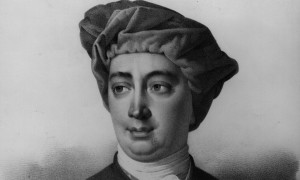It’s too easily supposed, after having heard their names used so often in sources not their own, that the enlightenment thinkers, and philosophers generally, have bequeathed to us all they have to say. That philosophy is a done deal, whose original enterprise is now more seriously undertaken by the natural sciences, or theology- kidding about last, and the first, actually. Or at least this is what Anthony Gottlieb (Got Liebniz?) would like to persuade us of inThe Dream of Enlightenment,reviewed by Jonathan Re at The Guardian:
He is on a mission to show that the great dead philosophers have been misunderstood and that they deserve to be taken seriously. It is because they still have something to say to us, he says, that we can easily get these philosophers wrong. In 2000 he publishedThe Dream of Reason, a brilliant retelling of the story of ancient Greek philosophy which brought out the lasting relevance of Plato’s idea that truth, happiness and virtue are inseparable, while vindicating Aristotle as a serious thinker about nature, art and society.The Dream of Reason is now joined by this much-anticipated sequel, which picks up the story with Descartes and carries it forward to the beginnings of the French Revolution.
“David Hume, the 18th-century Scottish philosopher, has become the role-model of choice for philosophers in the 21st century.” Photograph: Hulton Archive/Getty Images. Image for The Guardian.
If rationality was the theme of the earlier volume, the present one focuses on novelty: in the 17th century, as Gottlieb puts it with characteristic panache, philosophy started to be dominated by the new idea that all old ideas are suspect. Descartes is famous for trying to make a fresh start with his slogan I think therefore I am, but no one is sure what he meant, and according to Gottlieb he has been widely misunderstood. Gottlieb takes issue with Prince Charles and Pope John Paul II, among others, for presenting Descartes as a subjectivist, who got modernity off to a bad start by trying to make the I the foundation of everything.
In other words, philosophy has progressed since Narcissus made I the foundation of everything. Nietzsche of course stared into an abyss and discovered a monster (Beyond Good and Evil, Chapter 4, apothegm 146), circumventing that problem, but incurring others. We think too crudely about Descartes. He was not an ascetic rationalist. Plato’s beautifully imagined figure of the mortal soul in Phaedrus, in which a charioteer, driving his winged horses through the whole heavens, did not arrive at the seventeenth century as some rickety cart from which a Descartes would peddle his philosophy. To do so, Gottlieb argues, would be naively accepting what others are peddling, some of them sophists. Socrates is certainly the more relevant for that.
Read his full post at The Guardian

